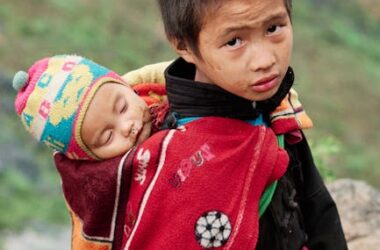In recent days, researchers at the National Institute of Biomedical Research in Congo have revealed alarming findings, stating that a variant strain of monkeypox virus appears to have acquired the ability to spread through sexual contact. This variant, marked as evolutionary branch I, has not only caused multiple minor outbreaks in the Central African region but also facilitated a series of infections in the conflict areas of Congo, raising concerns that an epidemic may reemerge this year.

According to a preprint report written by the researchers, an outbreak event involved 241 suspected infection cases and 108 confirmed cases. Due to testing capacity limitations, the actual number of infections could be much higher than these statistics. The data shows that nearly 30% of those confirmed are sex workers.
Notably, in addition to the monkeypox issue, Congo is also facing epidemics of other infectious diseases like cholera. This dual epidemic situation is worrying Anne Rimoin, an epidemiologist at the University of California Los Angeles, who believes that the risk of epidemic is significantly increased because of this.
Monkeypox virus can cause skin rashes which can progress to pustules. In severe cases, it can lead to death. The virus has long been present in the wildlife of several African countries and occasionally infects humans across species. Since 2017, the first large-scale person-to-person transmission outbreak in Nigeria has recorded more than 200 cases and over 500 suspected cases.
Experts had previously warned that the monkeypox virus might have started to adapt to a mode of transmission, but this warning was not widely heeded. It wasn’t until 2022 that a global epidemic caused by sexual contact spread rapidly, prompting the World Health Organization to declare it a Public Health Emergency of International Concern. According to statistics, this global outbreak infected more than 94,000 people and resulted in over 180 deaths.
Although the global number of monkeypox cases has decreased since last year, the infection rate in the Congo region has shown an upward trend. In September 2023, a new wave of suspected cases in South Kivu Province has disconcerted the scientific community. This time, the virus appears to spread mainly among sex workers, suggesting that it may have acquired a new route of sexual transmission. This development is of great concern to health officials.
In response to the outbreak, representatives from Congo and 11 surrounding countries held a meeting to develop a contingency plan and committed to strengthening surveillance for the monkeypox virus. Further genetic analysis indicates that the virus genome responsible for this outbreak has undergone mutations, including deletions, and scientists are naming it evolutionary branch Ib.
Last year, several developed countries offered a smallpox vaccine for high-risk groups prone to monkeypox, which is also effective against monkeypox. The United States has pledged to provide enough vaccines for 25,000 people in Congo, and Japan has also expressed its willingness to provide assistance. However, for a comprehensive vaccination campaign in Congo, hundreds of thousands of doses may be needed. It is still uncertain how much protection these vaccines can offer.
The Epidemic Intelligence Service officer at the Centers for Disease Control and Prevention in the United States, Andrea McCollum, stated that despite the current uncertainty, the promise from animal trial evidence gives us hope for the future.
Researchers conducted a trial related to Tecovirimat in the Congo, which is an antiviral medication hoped to combat the monkeypox virus. According to McCollum, the results of the study are expected to be announced next year.
Monkeypox virusvariant strainsexual transmissionepidemic concernsCongoinfectious disease outbreakvaccine aidantiviral medication



